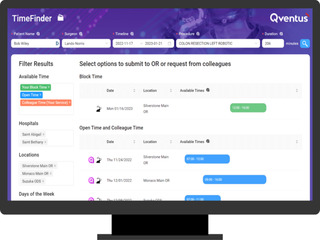 Artificial intelligence has become a “need to have” rather than a “nice to have” in healthcare. To wit: in Q1, 40% of the total funding for digital health went to AI-enabled companies, meaning $1.1 billion. That was up from 33% of all digital health funding in 2023, and 29% in 2022.
Artificial intelligence has become a “need to have” rather than a “nice to have” in healthcare. To wit: in Q1, 40% of the total funding for digital health went to AI-enabled companies, meaning $1.1 billion. That was up from 33% of all digital health funding in 2023, and 29% in 2022.
As such, the the global artificial intelligence in healthcare market size is set to see a big increase by the end of the decade.
The global market size for healthcare AI, which was valued at $10.31 billion in 2023, is forecasted to reach $14.92 billion in 2024 and $164.16 billion by 2030, growing at a compound annual growth rate (CAGR) of 49.1%, according to a report from MarketsandMarkets Research.
The market growth is being attributed primarily driven by the increase in chronic diseases; that includes heart disease, stroke, diabetes, and cancer, which has subsequently put more pressure on healthcare service providers to optimize their operations, and has led to them investing more in AI technologies.
The other factor leading to increased adoption are advancements in technology, including in machine learning algorithms, cloud computing, and data analytics.
Of course, there are also factors that may be holding back adoption as well, namely resistance from medical practitioners, as well as from patients, not to mention the high cost of implementing these technologies.
The global AI in healthcare market is segmented into integrated solutions, niche/point solutions, AI technology, and services, with the integrated solutions segment accounting for the largest share in 2023.
The report also segments AI by tools, including machine learning, natural language processing, generative AI, computer vision, and image analysis. Last year, the machine learning segment accounted for the largest share of the market, which is attributed to the increased availability of data, as well as the increasing adoption of ML by hospitals, research centers, and other healthcare institutions to deal with that data.
Other use cases include streamlining hospital administrative processes, mapping and treating infectious diseases, and personalizing medical treatments.
AI adoption is also being driven by clinical applications, as opposed to non-clinical applications, due to its ability to improve diagnostic accuracy, optimize treatment plans, and enhance patient outcomes. Tools like predictive analytics and imaging diagnostics can help clinicians with early disease detection and personalized care, while advancements in machine learning and natural language processing allow for integration into clinical workflows.
(Image source: harvestportfolios.com)



















